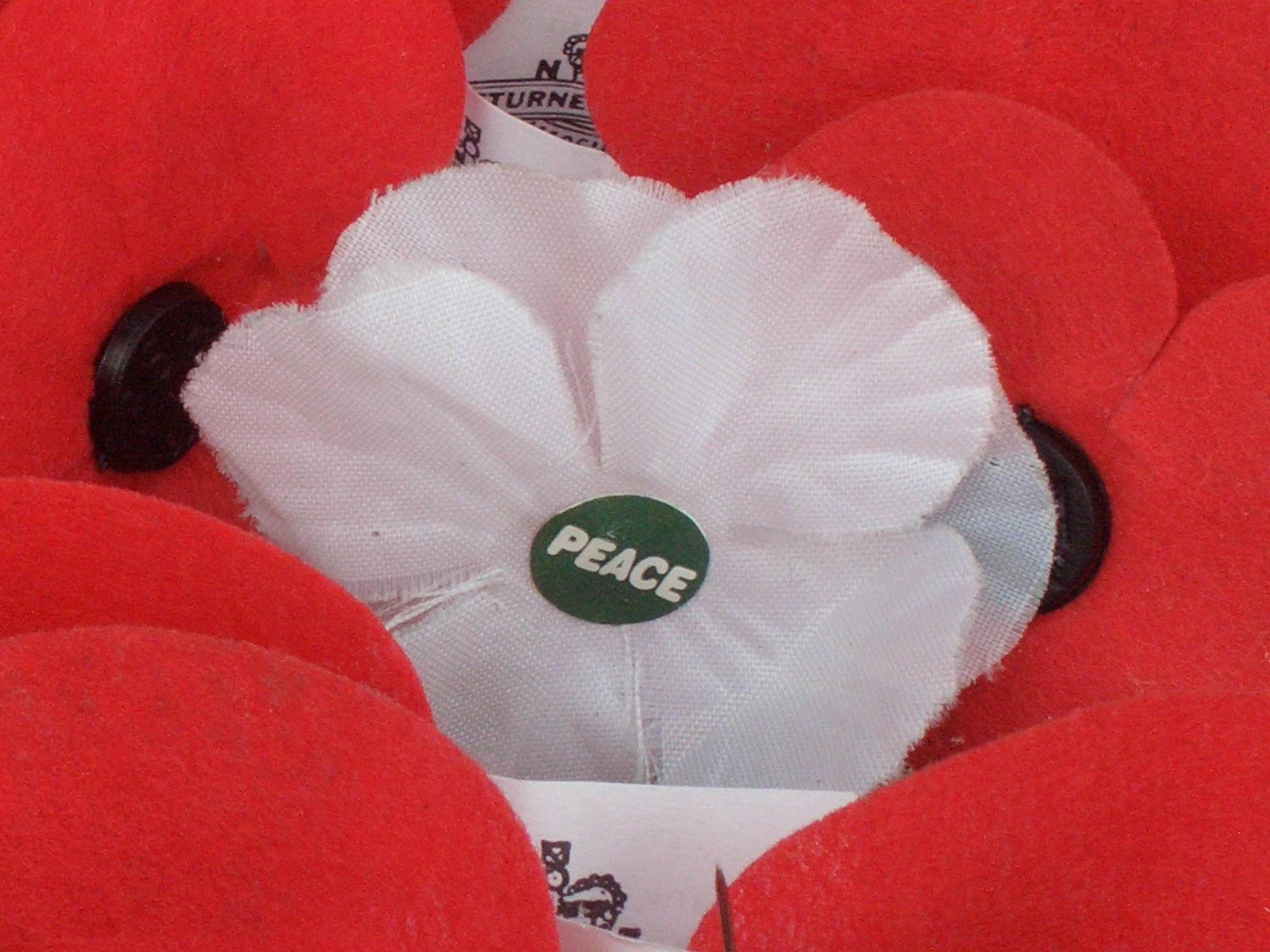Why I’ll be wearing both a red and a white poppy when I commemorate Remembrance Sunday this year
I was sad but not surprised that the UK was one of the countries that opposed the UN disarmament process. The inconsistency of arguing that nuclear weapons keep us safe while other countries do not deserve a similar level of security can no longer be maintained

Every year as November approaches we are faced with the decision about where we stand on the poppy issue. This seems to have become increasingly politicised in recent years and has now reached the world of football, with FIFA refusing to let players wear poppies at international games, judging them to be political symbols.
My policy is to wear two poppies: the red and the white. I want to show my respect and gratitude for those who fought for their country and sacrificed their lives to protect our freedom. However, I also want to use the opportunity of Remembrance Sunday to draw attention to the need to put as much effort into making peace as we do into making war. This also feels appropriate to me personally, since among my ancestors I have Quakers and conscientious objectors as well as professional soldiers.
I am a Quaker but I am not sure whether I could claim to be a pacifist because my commitment to peace has never been tested. However, I take very seriously the injunction to seek out the causes of war, injustice and insecurity. The politics of identity and nationalism which form the platform on which war-mongering can be built is sweeping through our continent and beyond. The desperation of working people who chose to believe the blandishments of The Donald arises from the inequality, loss of identity and powerlessness of a corporate-dominated globalisation. So peace-making is not an optional extra to my politics but lies right at the heart of it and motivates my approach to economics as well as to foreign policy.
It is also clear that allowing the production and sale of weapons to take place in a normal global market is itself increasing the likelihood of future conflict. The relationship between arms sales to Saudi and the death of innocent children in Yemen is a clear example of the immorality of the arms trade, not to mention our foreign policy.

But there has been some good news in recent weeks. Both the European Parliament and the UN have passed motions seeking to initiate new processes of nuclear disarmament. I was proud to have co-authored the European Parliament resolution which calls for the establishment of a nuclear free zone in Europe and urges all EU governments to continue working on freeing the Middle East of weapons of mass destruction.
I was sad but not surprised that the UK was one of the countries that opposed the UN disarmament process. The inconsistency of arguing that nuclear weapons keep us safe while other countries do not deserve a similar level of security can no longer be maintained.
Next week I will be launching a report that makes clear that the jobs argument for Trident is equally invalid. Based on a study of Devonport Dockyard it illustrates that, for far less public money, we could invest in socially productive employment to replace Trident-related jobs.
During the referendum campaign, I argued fervently for the central role the EU has played in ending wars in our continent and in creating and reinforcing democracies in Europe. As we witness incitement to political violence and challenges to the rule of law from the far right, I am reminded of the importance of the EU as a bulwark against fascism. As the world braces itself for four years of Donald Trump, this role has become even more vital. Sadly, our own decision to leave the EU will likely strengthen extremist and fascist parties in other European countries and progressives across the continent will need to unite against such forces.
As children, we learn that red and white combined makes pink. Appropriately the peace rose flowers cream colour, flushed at the petal edges with crimson-pink. Peace can blossom when we learn lessons from past conflicts and understand the complex and deep-seated causes of such conflicts. The old slogan trotted out by those with a classical education is, “If you desire peace prepare for war”. I would respond with a slogan that, to my mind, is better suited to the 21st century: “If you would have peace, prepare for peace”.
Molly Scott Cato is Green MEP for the South West. She is a Quaker and long-time campaigner for nuclear disarmament
Join our commenting forum
Join thought-provoking conversations, follow other Independent readers and see their replies
Comments
Bookmark popover
Removed from bookmarks